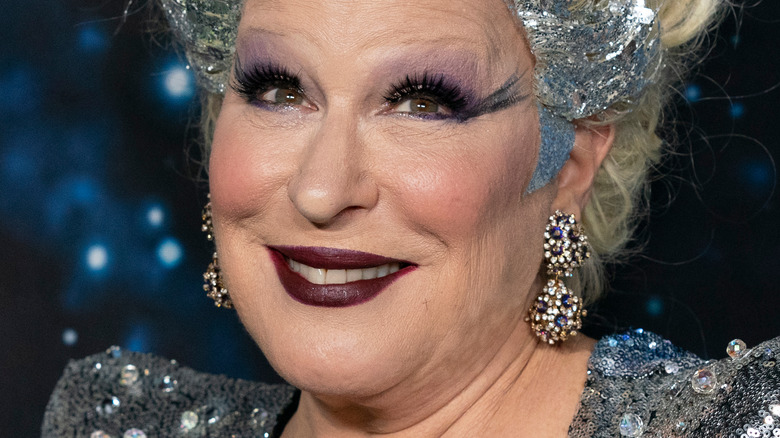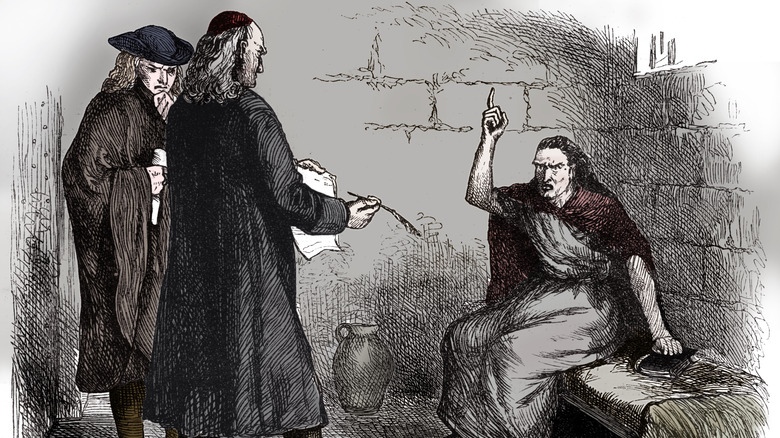The Real-Life Sanderson Sisters Have A Much Sadder Story Than Hocus Pocus
It's not Halloween without "Hocus Pocus," is it? Despite flopping dismally after its initial release in 1993, in the years since, it has become a beloved seasonal comedy with a devoted cult following. So devoted that we are now in for a sequel on Disney+, "Hocus Pocus 2," this Halloween.
As one of the best movies to feature witches, at the center of this film is the Sanderson sisters — Winifred (Bette Midler), Sarah (Sarah Jessica Parker), and Mary (Kathy Najimy) — three maniacal witches from the 1600s who are accidentally brought back to life on Halloween and comically terrorize the town of Salem, Massachusetts.
As all fans will know, the story is comedic, full of goofy characterizations and slapstick. In fact, "Hocus Pocus" is quite possibly about as far from scary as you can get while still dealing in supernatural matters. There is probably no more "family-friendly" a movie to watch during the spooky season. That said, given the movie's setting and the infamous role Salem played in the history of colonial America, it should be no surprise that the story of the actual Sanderson sisters is far less jovial.
Three sisters were accused of witchcraft during the Salem Witch Trials
Some writers, such as Stefania Sarrubba at The Things, have suggested that Winnifred, Sarah, and Mary could be based on three real-life sisters in Salem who were accused of witchcraft during the trials: Rebecca Nurse, Sarah Cloyce, and Mary Easty.
Cloyce features particularly prominently in the chronicles of the Salem witch trials. Not only was she among the group of women first accused of witchcraft by the young Abigail Williams in 1692 — the accusations that essentially set off the colony's panic around witches — she was one of the lucky few who managed to survive the episode alive. Cloyce's sisters wouldn't be so fortunate. Rebecca Nurse was hanged on July 19, 1692, and Mary Easty on September 22 (via Salem Witch Museum).
There's no proof that any of the accused cursed the town, on the gallows or otherwise. And, of course, the hysteria that set in among the Salem settlers wasn't the result of any actual hexes or possessions. It was a case of mass scapegoating and paranoia mixed with a dose of misogyny. All of which makes the whole episode even more shameful and tragic. Perhaps that's why there aren't many comedies rooted in the Salem witch trials.

